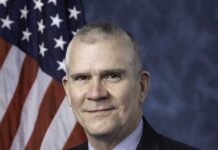Vice Chairman Marco Rubio (R-FL) of the Senate Select Committee on Intelligence questioned Meta President of Global Affairs Nick Clegg on fact-checking policies at Facebook and Instagram during a hearing on the responsibility of U.S. tech companies to help secure our nation from foreign influence operations in the upcoming 2024 elections.
Click here for video and read a transcript below:
RUBIO: The area I want to focus on is where political speech is involved…. In particular, I want to understand the current policies and practices regarding content moderation.
I’m reading from Meta: “We’re constantly working to stop the spread of misinformation and disinformation. We have built the largest independent fact checking network of any platform, nearly 100 partners from around the world, to review and rate viral misinformation in more than 60 languages. Stories that this group of people rate as false are shown lower in feed. Some pages repeatedly create or share misinformation. We significantly reduce their distribution and remove their advertising rights.”
We’re not talking about…fake content that’s generated to look like Fox News, Wall Street Journal, New York Times. That should be taken down. Those companies should want it taken down. That’s their copyright and their logo and their letterhead. I’m talking about this: You’ve got a group of people, your fact checkers from all over the world, to determine whether something is true or not.
Let me take you back to a real world scenario, which ties into what the CEO of the company said. There were people at one point saying: “I believe that the pandemic began in a lab. I believe there was an accident in the lab and it leaked out.” At one time, that was considered not factual. In fact, there was pressure from government officials on companies not to report on that. How would that work today? Who determines whether that’s true or not? Because it wasn’t “true” then. But all of a sudden now, it is 50 percent likely. How would something like that work today?
There are people that were caught up in that. I imagine that under the policies that you describe, if someone was out there raising the specter of a potential lab leak, it would run through these fact checkers from 100 partners all over the world, they would decide whether it’s true or not, and you could have your page diminished or potentially de-platformed, if you write too much about it. How does this policy deal with that problem that I just described, which is a real world one?
CLEGG: Yes, indeed it is. As I said in my opening statement, we all inhabit a world of imperfect information. I think the pandemic was a very good example of that. Information changes. Obviously, with the benefit of hindsight, we now understand the epidemiology of the pandemic, which we didn’t at the time. When we were in the middle of the pandemic, prior to the vaccines being rolled out, when people were dying, when really no one knew the trajectory of this global pandemic, we as an engineering tech firm… Of course, we’re not specialists…
RUBIO: I’m not asking what happened. I understand what happened. I want to know how this policy today would prevent that from happening. If the government is telling you, “This is a lie, we have proof that it’s a lie, take it down,” and your fact checkers say it’s a lie, then my account gets blocked. It gets diminished. That would happen today, right?
CLEGG: Two things: Firstly, we do continue to rely on these independent fact checkers. We don’t employ them. They’re not part of Meta. They are independently vetted by a third party organization.
RUBIO: Who are they?
CLEGG: There’s a variety of organizations which specialize in examining what they think is a reliable way of asserting whether something is missing…
RUBIO: Is there a way to know who those vetters are?
CLEGG: Oh, yes.
RUBIO: Is there a list somewhere? A roster?
CLEGG: We have a full list. Absolutely. We can provide them to you. They obviously work in multiple languages. I think there are 11 fact checkers in the United States, and we can provide you with all the information on them. That’s the first thing.
The second thing is, and Mark Zuckerberg did indeed explain this in his recent letter to the House Judiciary Committee, I think we learned our lesson. In the heat of the moment, when governments around the world exert particular pressure on us on particular classes of content which they are particularly focused on, we need to act…independently. We need to be resistant to passing moods and passions around particular bits of content, which was particularly the case during the pandemic. People were, in effect, in a panic…
RUBIO: In a different context, but the exact same system, a laptop appears, and 51 people sign a letter saying, “We used to work in the intelligence community, this is Russian disinformation,” and your fact checkers say, “We got to listen to the experts, they would know.” Does the New York Post get their account taken down again?
CLEGG: To be very clear, we did not take down the account or the content…
RUBIO: But under this policy, if you deem it to not be true because it’s disinformation, because some guys signed a letter saying that it was, it would lower them in the feed and potentially reduce their distribution. If they post that story too many times, you may actually lock them out.
CLEGG: In this instance, Senator, you’re correct that that story was demoted. It was always available. Millions of people saw it. But its prominence on our services was temporarily reduced. We used to do that to give the fact checkers the space and the time to choose to examine that content. In this instance, with the Hunter Biden story, they didn’t do so. That temporary demotion of a few days was then released.…
RUBIO: But did the fact checkers reduce or demote the 51 people who signed the letter because that turned out to be not true?
CLEGG: I don’t believe they did so at the time.














